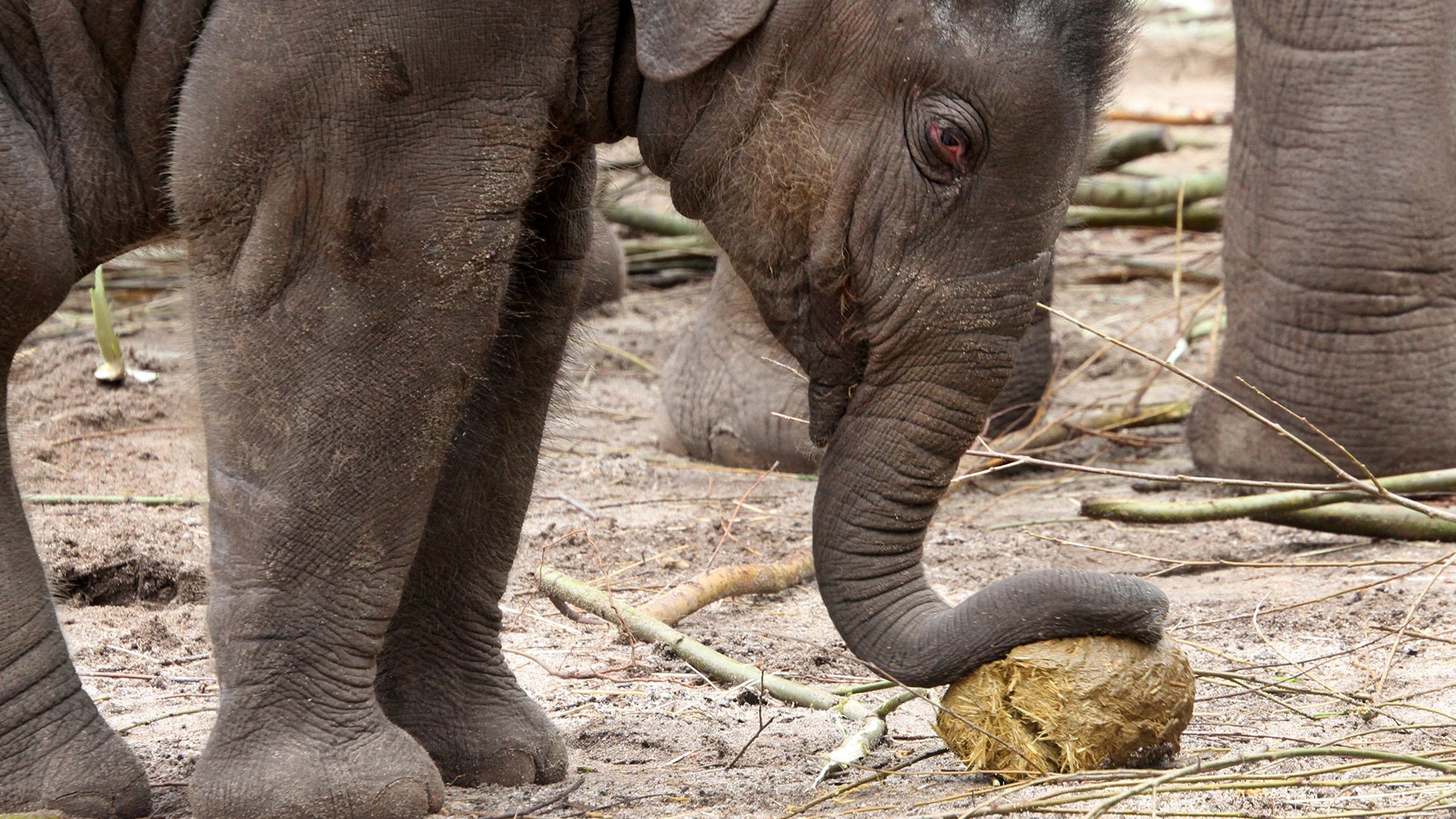Valuable dung
Every day, ARTIS generates a huge amount of organic waste, such as elephant dung. This material is still full of nutrients. We are currently investigating whether we can re-use this 'waste'.
Fermentation tank
Asian elephants produce some 100 kg of dung each day. This is not only because they eat a lot, but also because plants are difficult to digest. Mammals lack the cellulase enzyme, which is needed to break down vegetable matter (containing cellulose molecules, which do not decompose easily). They must instead rely on their intestinal microbes to do the job. Elephants have long intestines with a huge caecum. The latter acts as a kind of fermentation tank. Food stays here for an extended period of time, allowing the intestinal bacteria to extract as many nutrients as possible from the food.
Largely undigested
Even so, more than half of what an elephant eats passes through undigested. Consequently, elephant dung is an incredibly energy-rich fertiliser, and it is a waste to just throw it away. ARTIS wants to convert this large volume of elephant dung and other organic waste matter into a soil improver in the park's many plant borders. To do this, just like the elephant, ARTIS needs the help of microbes.
Sauerkraut with manure
Microorganisms, including lactic acid bacteria, Streptomyces, yeasts and fungi (so-called Effective Microorganisms, or E.M.) are added to the mix of manure and plant waste. These microbes work together to ferment the elephant dung into ‘bokashi’ – a Japanese term for fermented organic material. Unlike conventional composting, this mixture is subsequently sealed airtight. This allows anaerobic ('without oxygen') fermentation to occur. In this process, useful metabolic products of the microbes are created, the energy in the product is better preserved and less of the mixture is lost in the form of carbon dioxide. As a result, the whole has a higher nutritional value, just like with sauerkraut, for example.
Advantages
The microbe-rich soil improver has several advantages. It has a detoxifying effect, is a good food source for soil life and ensures faster availability of the absorbable nutrients for the plant. This spring, ARTIS will start testing fermentation with elephant dung and vegetable waste. A number of test bokashi bins will be set up next to the penguin enclosure. The fermentation process takes six to eight weeks, after which the mixture can be used on the plant borders. In this way, ARTIS hopes to make valuable raw materials from its many waste streams and to close the sustainable cycle still more effectively.

